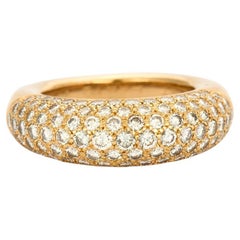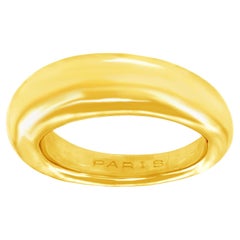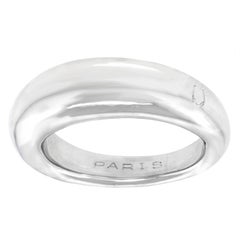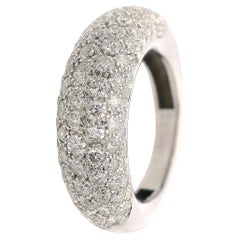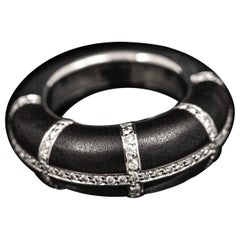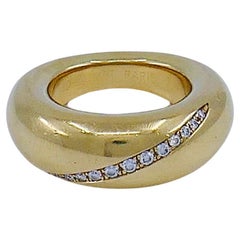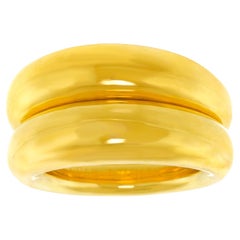Chaumet Anneau Ring
2010s French Band Rings
Diamond, 18k Gold, Yellow Gold
1990s French Modernist Band Rings
Gold, 18k Gold, Yellow Gold
1990s French Modernist Band Rings
18k Gold, White Gold
Vintage 1980s French Dome Rings
White Diamond, Diamond, White Gold, 18k Gold, Gold
Late 20th Century French Modern Cocktail Rings
Diamond, Gold, 18k Gold, White Gold
Recent Sales
1990s French Band Rings
Diamond, Gold, 18k Gold, Yellow Gold
1990s French Modernist Band Rings
Gold, 18k Gold, Yellow Gold
1990s Dome Rings
Gold, 18k Gold, Yellow Gold
21st Century and Contemporary French Dome Rings
Pink Sapphire, 18k Gold, White Gold
21st Century and Contemporary Cluster Rings
Early 2000s French Contemporary Fashion Rings
Gold, 18k Gold, Yellow Gold
People Also Browsed
1990s Italian Stud Earrings
Diamond, Tourmaline, 18k Gold, Yellow Gold
1990s Italian Fashion Rings
Garnet, 18k Gold, Yellow Gold
2010s Italian Contemporary Cocktail Rings
Gold, 18k Gold, Yellow Gold
Vintage 1970s French Cocktail Rings
Coral, Jade, 18k Gold, Yellow Gold
20th Century Dome Rings
Diamond, Yellow Gold, 18k Gold
Late 20th Century Dome Rings
Diamond, 18k Gold, Yellow Gold
21st Century and Contemporary American Contemporary Cocktail Rings
Emerald, Diamond, Gold, Yellow Gold, 14k Gold
Vintage 1970s French Modern Signet Rings
Coral, Diamond, 18k Gold
20th Century Fashion Rings
Citrine, Gold, 18k Gold, Yellow Gold
Vintage 1960s French Clip-on Earrings
Diamond, Pearl, 18k Gold, Yellow Gold
20th Century Dome Rings
Diamond, Yellow Gold, Gold, 18k Gold
21st Century and Contemporary Italian Modern Fashion Rings
Gold, 18k Gold, Rose Gold
Early 20th Century French Solitaire Rings
Diamond, 18k Gold, Yellow Gold
1990s French Contemporary Dome Rings
Gold, 18k Gold
Vintage 1970s Modern Dome Rings
Rubelite, 18k Gold, Yellow Gold
1990s French Modern Cocktail Rings
Citrine, Gold, 18k Gold, Yellow Gold
Chaumet for sale on 1stDibs
Decades before luxury French jewelry maisons such as Van Cleef & Arpels and Cartier were born, Marie-Étienne Nitot (1750–1809) founded the house that became the internationally esteemed Chaumet, which, for centuries, has created timeless necklaces, watches, rings, tiaras and other jewelry and accessories for royalty as well as Hollywood luminaries.
Before opening his own jewelry house, Nitot worked as an apprentice to Ange-Joseph Aubert, court jeweler to Marie Antoinette, and collaborated on pieces for the Queen. In 1780, he left Aubert’s side to open his own maison.
Surviving the upheaval of the French Revolution, Nitot soon found lavish commissions with the new people in power. The Emperor Napoléon Bonaparte longed for France to once again be the epicenter of luxury, making himself the fashionable face of the prospering country. Nitot’s commissions for Napoléon began with the papal tiara for Pope Pius VII that included a 414-carat emerald among its thousands of precious stones and the 1804 coronation sword, a decadent piece that featured the 140-carat Regent diamond.
The young jewelry house soon became the official jeweler of the Imperial Court, the personal jeweler of Empress Joséphine and one of the most sought-after jewelers in Europe. Chaumet’s work in this era helped popularize the tiara as a status symbol, with ornate pieces designed for Joséphine and Empress Marie-Louise, Napoléon’s second wife.
After Nitot died in 1809, his son, François-Regnault, took over in 1812 and moved the maison into the Place Vendôme, making it the first business to occupy the Parisian center of luxury. By then, Chaumet had included timepieces in its offerings, such as bracelet watches adorned with precious gemstones and equipped with movements made by Breguet (which opened a shop on Place Vendôme in 1933).
After the fall of the Napoléon Empire, successors Jean-Baptiste and Jules Fossin focused more on romantic styles of jewelry that referenced the past and nature, an approach carried on by Valentin and Prosper Morel. It was Joseph Chaumet, director from 1885 to 1928, who gave the maison its illustrious name and brought it into the 20th century with jewelry, accessories and tiaras inspired by the extravagant decor of the Belle Époque.
Later, with Joseph’s son, Marcel Chaumet, succeeding him, the house would be featured at the Exposition Internationale des Arts Décoratifs et Industriels Modernes in Paris — from which the term Art Deco derives — and, alongside the likes of Cartier, would be seen as a leader in introducing the flamboyantly geometric designs and high-contrast color pairings of Art Deco jewelry to the global stage.
Chaumet has adapted over the years to meet changing tastes and trends. The house still reigns in the world of luxury jewelry, celebrating its 240th anniversary in 2020. Since 1999, it has been part of the LVMH Group. Its salons and high jewelry workshop continue to operate in the Place Vendôme where gem-setters, polishers and jewelers craft rings, earrings, watches and enduringly popular tiaras.
Find an exquisite range of authentic vintage Chaumet jewelry on 1stDibs.
Finding the Right Rings for You
Antique and vintage rings have long held a special place in the hearts of fine jewelry lovers all over the world.
No matter their origin or specific characteristics, rings are timeless, versatile accessories. They’ve carried deep meaning since at least the Middle Ages, when diamond rings symbolized strength and other kinds of rings were worn to signify romantic feelings or to denote an affiliation with a religious order. Rings have also forever been emblematic of eternity.
Over time, rings have frequently taken the form of serpents, which have long been associated with eternal life, health and renewal. Italian luxury jewelry house Bulgari has become famous for its widely loved Serpenti motif, for example, and its Serpenti ring, like the other accessories in the collection, began as an homage to jewelry of the Roman and Hellenistic eras. The serpent is now a popular motif in fine jewelry. Jewelry devotees have long pined for rings adorned with reptiles, thanks to antique Victorian rings — well, specifically, Queen Victoria’s illustrious engagement ring, which took the form of a gold snake set with rubies, diamonds and an emerald (her birthstone). Designs for Victorian-era engagement rings often featured repoussé work and chasing, in which patterns are hammered into the metal.
Engagement rings, which are reliably intimidating to shop for, are still widely recognized as symbols of love and commitment. On 1stDibs, a range of buying guides can be found for those in the market for antique engagement rings, vintage engagement rings or Art Deco engagement rings.
The most collectible antique engagement rings and vintage engagement rings are those from the Victorian, Edwardian and Art Deco eras. Named for the monarchies of the four King Georges, who in succession ruled England starting in 1714 (plus King William’s reign), antique Georgian rings, be they engagement rings or otherwise, are also coveted by collectors. Pearls, along with colored gemstones like garnets, rubies and sapphires, were widely used in Georgian jewelry. The late-1700s paste jewelry was a predecessor to what we now call fashion or costume jewelry.
The Art Nouveau movement (1880–1910) brought with it rings inspired by the natural world. Antique Art Nouveau rings might feature depictions of winged insects and fauna as well as women, who were simultaneously eroticized and romanticized, frequently with long flowing hair. Art Deco jewelry, on the other hand, which originated during the 1920s and ’30s, is by and large “white jewelry.” White metals, primarily platinum, were favored over yellow gold in the design of antique Art Deco rings and other accessories as well as geometric motifs, with women drawn to the era’s dazzling cocktail rings in particular.
Whether you’re hunting down a chunky classic for a Prohibition-themed cocktail party or seeking a clean contemporary design to complement your casual ensemble, find an exquisite collection of antique, new and vintage rings on 1stDibs.
